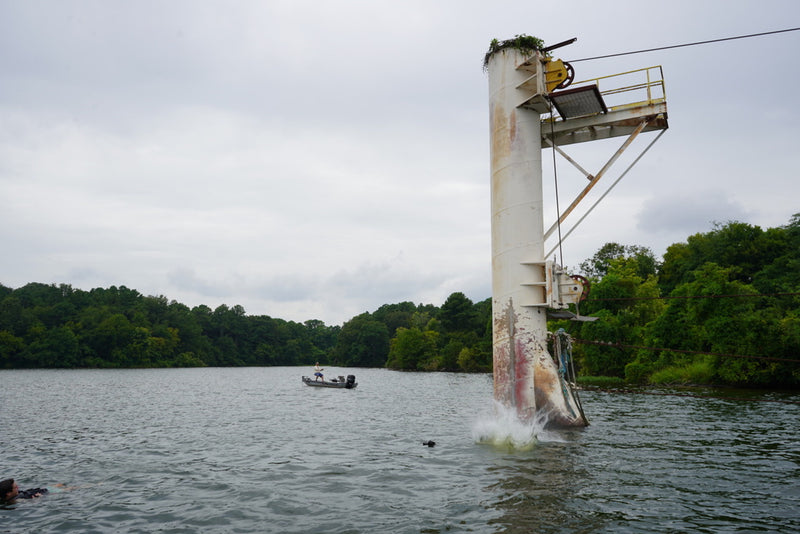We pursue justice for those you've loved and lost

At Mann & Potter, we understand that no legal outcome can replace a person’s life, but it can offer a sense of justice

Car Accidents

Commercial Truck Wrecks

Nursing Home Neglect

Negligent Security

Premises Liability

Workplace Accidents
We help families find clarity, accountability, and peace
If you've lost a loved one due to someone else's action or negligence, we’ll walk you through your rights and options with care. Please complete the form below, and a member of our team will be in touch to schedule a complimentary case evaluation.
All fields with an asterisk * are required.
Motor Vehicle Accidents
Commercial Truck Wrecks
Workplace Injuries
Slip & Fall
Defective Products
Medical Negligence
Premises Liability
Wrongful Death
We’ve helped thousands rebuild their lives after devastating injuries, but for us, it’s not just about numbers — it’s about what those outcomes made possible
Steven Cole and Ted Mann are outstanding attorneys. I'm am very satisfied with the outcome of my case. I would definitely use them again.
Robert Potter is a great attorney that will fight for you. He has a wonderful staff that is equally committed to help your every need.
Very professional and kept us in the loop every step of the way. I would highly recommend this law firm for your personal injury or insurance case.

Words just cannot explain that when you hire Ted Mann and Mann & Potter, you will be getting the best of representation. He is one of the most selfless people that you will ever meet, and when I say he works night and day for you when you hire him, you can take it to the bank and cash it that he has really really put his all into your case and he has done everything possible to represent you to make sure that you get justice. I highly highly recommend him.

The process of filing a wrongful death claim in Alabama
A wrongful death claim arises when someone dies due to the reckless, negligent, or intentional act of another person, business, or entity.
Our law firm represents families in wrongful death lawsuits involving:
- Auto accidents
- Truck accidents
- Motorcycle accidents
- Bicycle accidents
- Pedestrian accidents
- Slips and falls
- Traumatic brain injuries
- Workplace accidents
- Motorcycle accidents
- Defective products
- Lack of proper security
- Mesothelioma
- Medical malpractice
- Birth injuries
- Nursing home abuse and neglect
- Aviation accidents
- Assault
- Murder
Alabama code section 6-5-410 defines wrongful death as a “wrongful act, omission, or negligence causing death.” A wrongful death claim is a civil claim for monetary damages brought by a private party, and this type of claim can be brought even if the defendant is not facing criminal charges for the same death.
Alabama wrongful death laws are very unique and differ in some very significant ways from the laws in most other states. First of all, family members of the decedent are not allowed to bring a wrongful death claim. Instead, a claim can only be brought by the personal representative of the decedent’s estate.
If the decedent had a will, a personal representative/executor would be named in the will. If there is no will, then a personal representative must be appointed by the court. The spouse of the decedent is first in line to serve as personal representative, and after that, the right goes to the remaining heirs. However, if a petition to have a personal representative appointed is not filed within 40 days of the decedent’s death, the spouse and heirs forfeit their priority to serve, and the court may appoint anyone else who files a petition.
Although a wrongful death claim must be brought by the decedent’s estate, proceeds that are awarded from the lawsuit do not go back to the estate. Instead, they are distributed to the heirs at law. This means that no matter who the decedent left his or her assets to in the will, proceeds from the lawsuit must go directly to the decedent’s intestate heirs under Alabama law. This also means that proceeds from the claim do not have to be used to settle any of the estate’s debts, such as funeral costs, credit card bills, and healthcare bills.
Another way that wrongful death lawsuits in Alabama are unique is with the damages that can be awarded. In most other states, you can sue for compensatory damages, such as medical expenses, loss of future earnings and benefits, and non-economic damages such as mental anguish and loss of love, affection, and companionship. In Alabama, you can only sue for punitive damages in a wrongful death claim.
Punitive damages are not meant to compensate the family for their loved one’s loss, but rather to “punish” the person or party that was responsible for their death and help deter them (and others) from committing similar actions in the future. As such, the amount of damages awarded is supposed to be in direct proportion with the severity of wrongdoing that resulted in the death, rather than the monetary value of the decedent’s life.
Because you can only sue for punitive damages in an Alabama wrongful death lawsuit, these claims are much more complicated than a typical personal injury case. This is especially true in cases in which the actions of the defendant were negligent, but there does not appear to be intent to do harm to the victim.
That said, punitive damages can often be recovered in cases involving simple negligence, if that negligence results in death. The key is to work with an attorney who thoroughly understands the state’s wrongful death laws and has the proven ability to make a persuasive argument that punitive damages should be awarded.
In most cases, the personal representative of the decedent’s estate has just two years from the date of the decedent’s death to file a wrongful death lawsuit. If the lawsuit is against a government entity, the timeframe is much shorter, usually either six months or a year.
Considering it can take several weeks (at least) to have a personal representative appointed if your loved one died without a will, it is extremely important to get started on your case as soon as possible, so your right to recover damages does not expire.
The laws in Alabama make wrongful death claims more complicated and challenging to pursue than in almost any other state. If you have lost someone close to you because of the wrongful actions of another person or party, you need strong legal counsel in your corner advocating forcefully for your right to recover full and fair compensation.
Waiting Too Long
The longer you wait to file a claim, the less evidence you have at your disposal. It’s best to meet with an attorney right after your accident so they can investigate, gather evidence, and move forward with your claim.
Going Public with Your Claim
Whether you post on social media or go to the news about it, you could be seriously damaging your case by going public. While it may be difficult, limit your discussion of your claim to your attorney until it is settled.
Not Knowing the Terms of Your Settlement
If you do negotiate a settlement, make sure you completely understand its terms. Victims will sometimes take a settlement, and then try to go back to the liable party to ask for more compensation. This is almost guaranteed not to happen.
Underestimating Damages
In some cases, victims underestimate their damages. When trying to calculate medical bills, they might look at the bills coming from the insurance company and simply calculate them that way. They don’t realize that the other party’s insurance company may have to pay the whole bill, not just the part that their health insurance doesn’t cover. They forget to calculate in the cost of going to and from doctors’ appointments, medication expenses, ambulance bills, and other expenses. This is one reason you should work with an attorney during this process.
Ignoring Medical Advice
If you are seeking compensation for your injuries, there’s an expectation that you have a vested interest in having your injuries healed. If you go to the doctor but fail to attend follow-up appointments, skip physical therapy sessions, or don’t do your range of motion exercises, it may appear to the other side that you are dragging out your injury just to get more money out of them.
Not Hiring an Attorney
This is easily the most expensive mistake that accident victims make. People skip hiring an attorney for a number of reasons. They might be worried about the cost, which isn’t an issue because most personal injury attorneys work on a contingency basis. They may worry about the stress of going to court, which isn’t an issue because the vast majority of personal injury cases are settled out of court.
Assumption of Risk
Assumption of risk refers to the fact that every activity comes with some level of risk. If you choose to engage in that activity, you are essentially accepting that risk. The level of risk for an indoor trampoline park, for example, is different than the level of risk that comes with going for a walk around the block.
Compensation
Compensation is money paid from a negligent party or a negligent party’s insurance company to a victim of their negligence.
Damages
This refers to any type of loss you have suffered as the result of an accident caused by someone else’s negligence. For example, your damages might include lost wages from time off of work, medical bills from your injuries, and property damage. You will need to document damages to get compensation.
Duty
If someone has a duty or duty of care to someone, they have an obligation to limit damage to them. A good example is the duty of care a driver has when they are on the road. They have a duty of care to everyone else on the road, so if they text while driving or drive drunk, they are violating that duty.
Gross Negligence
When someone violates their duty of care, it is considered gross negligence if they blatantly and recklessly disregard the other person’s health, wellbeing, or property.
Liability
Liability refers to a legal obligation one has. In personal injury law, it typically refers to one person’s obligation to pay for damage caused in an accident.
Litigation
When you decide to move forward with a lawsuit, you are engaging in litigation. This isn’t always the end result of a personal injury claim, since many claims are settled during negotiations.
Negligence
When someone violates their duty of care to another person, they are engaging in negligence. Many people use this term to refer to the carelessness shown by one individual in an accident.
Connect with our legal team today







